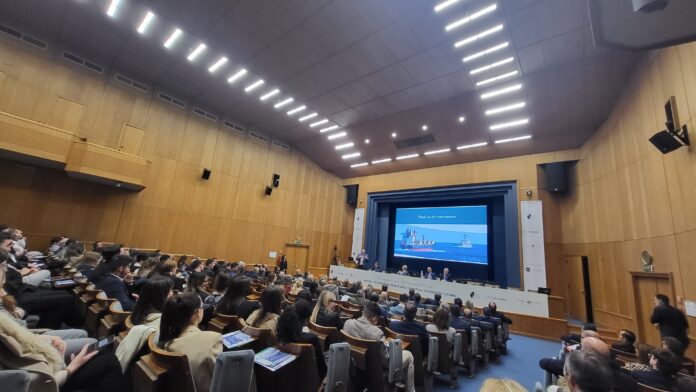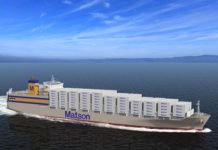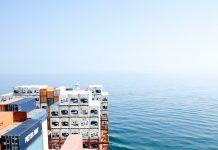
A Maritime Security Conference, held in Athens, Greece, and organized by Greece’s Foreign Affairs Institute in collaboration with the University of Piraeus and the Mackinder Forum, captured significant attention with its insightful discussions.
The conference centered around the theme of increasing volatility in global trade, emphasizing the emerging reality of commercial shipping being weaponized in the coming years.
Alexandros Itimoudis, Container News representative, noted several key opinions that underscored the importance of this critical issue.
Dominick Donald, a geopolitical risk advisor to the Joint War Committee at Lloyd’s since 2004, underscored the growing concerns among war risk underwriters about asset losses due to war risk perils, particularly when no additional premiums are covered.
He outlined a deteriorating threat landscape for commercial shipping from 2022 to 2024, driven by state and sub-state actors strategically targeting shipping with wartime weapons.
Donald emphasized that states would likely disrupt specific trades or shipping movements to serve their interests, a shift from past behaviors. He also predicted a more complex legal environment, where trade wars, while theoretically not affecting shipping vessels directly, could lead to significant delays and disputes.
This, he suggested, would further politicize commercial shipping, increasing state actions against it, even if covertly, and heightening risks like prolonged detention.
Professor Athanasios Platias, a specialist in Strategic Studies, addressed the “weaponization of everything” concerning commercial shipping, including tariffs, sanctions, and shipbuilding, which are increasingly being used as tools in geopolitical strategies.

Punit Oza, founder and director of Maritime NXT Pte Ltd, explored the dual dimensions of geopolitics impacting global shipping: the overt, involving political impacts and economic consequences, and the covert, affecting trade routes and security concerns.
He also highlighted critical geopolitical and shipping intersection points, such as trade barriers, economic dominance, and the influence of new technologies and alliances on shipping.
Konstantinos Michanetzis, CEO of Seeders and former naval engineer, highlighted the role of emerging technologies in shaping maritime infrastructure security amidst hybrid threats.
He detailed how cyber systems, energy supply lines, communication networks, and human factors contribute to multiple attack vectors, with adversaries combining cyber, physical, economic, and informational warfare tactics below the threshold of formal warfare.

Rodger Baker, Executive Director at the Stratfor Center for Applied Geopolitics, provided a comprehensive overview of the Sino-US competition in the West Pacific and Enclosed Seas.
He emphasized the strategic importance of the South China Sea for American interests and the extensive Chinese maritime infrastructure and shipping traffic as layers of strategic concern.
Baker also discussed the delicate position of Taiwan within Chinese security strategy, noting China’s intentions to bring Taiwan into its sphere of influence without immediate plans for invasion, aiming to disrupt the US-led island chain strategy.
He also touched on the potential repercussions for ASEAN countries from the US-China trade dynamics, highlighting the risks of increased tariffs and the strategic complications arising from their trade relationships with both superpowers.
The conference illuminated the multifaceted challenges facing maritime security and trade, underscoring the need for a proactive approach to navigating the increasingly weaponized landscape of global commerce.





